Publications
Articles, publications, books, tools and multimedia features from the U.S. Institute of Peace provide the latest news, analysis, research findings, practitioner guides and reports, all related to the conflict zones and issues that are at the center of the Institute’s work to prevent and reduce violent conflict.
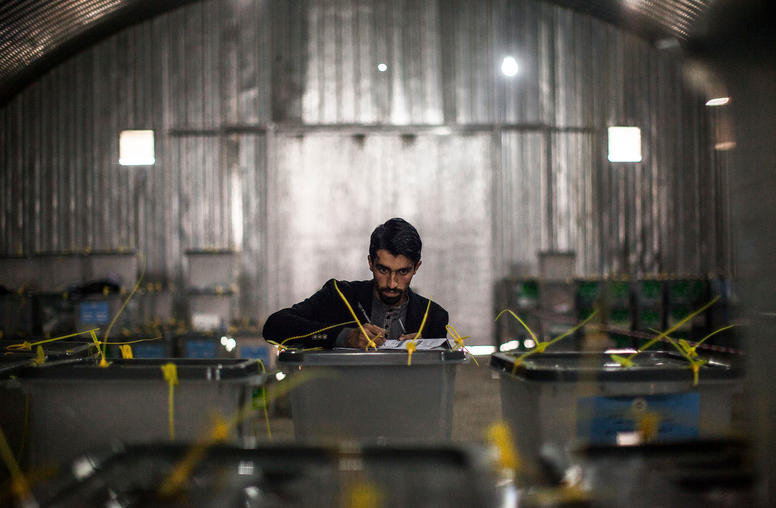
Afghanistan’s Parliamentary Vote: A Canary in the Presidential Poll Mine
There is a palpable sense of anticipation in Kabul days before parliamentary elections will be held. Blast walls, billboards and powerline poles are plastered with the campaign posters of the hopeful candidates. With 800 candidates competing for 33 seats in Kabul, winning a seat in the province will be challenge. The possibility of successful electoral process nationally is equally daunting, however, as poor security, delayed preparations and the last-minute introduction of electronic voter verification machines (in a country with spotty electricity) make pulling off a credible vote a real gamble.
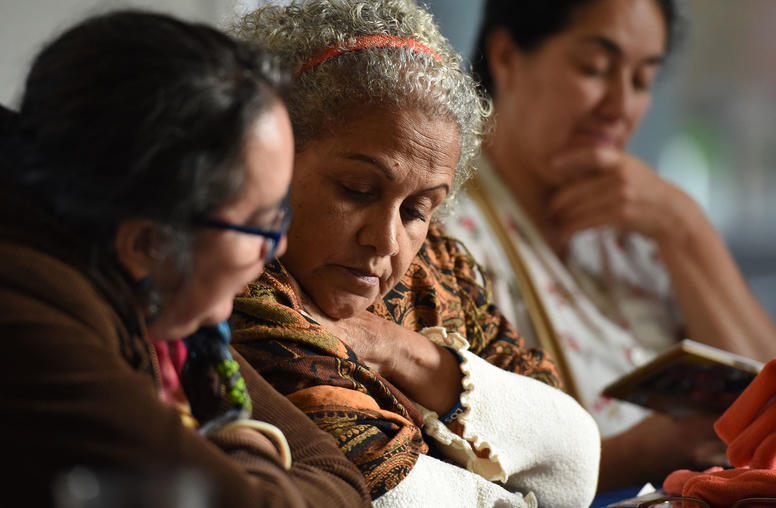
If we want to build peace, we can’t keep women out.
When nations affected by violent conflict try to make peace, the evidence is clear on what works. For a durable peace agreement, women must be included throughout the process. While the U.N. Security Council unanimously endorsed that goal in 2000, women still are excluded from peace processes. Among 504 peace accords signed by 2015, only 27 percent even mentioned women. A U.N. study of 14 peace processes from 2000 to 2010 found that women comprised only 8 percent of negotiators and 3 percent of signatories.
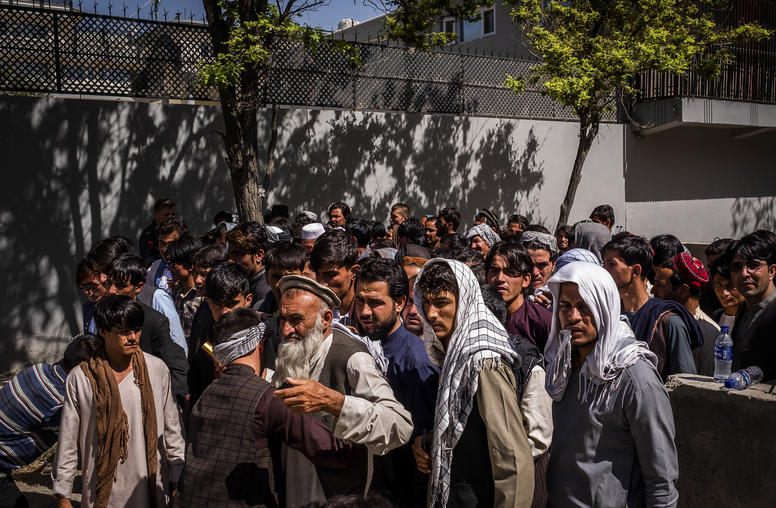
Amid Intense Violence, Afghans Show Support for Democracy
USIP’s Scott Worden examines Afghanistan's October parliamentary elections, including the impact of violence, the elections’ credibility and what implications the polls will have for the peace process and the critical 2019 presidential election.
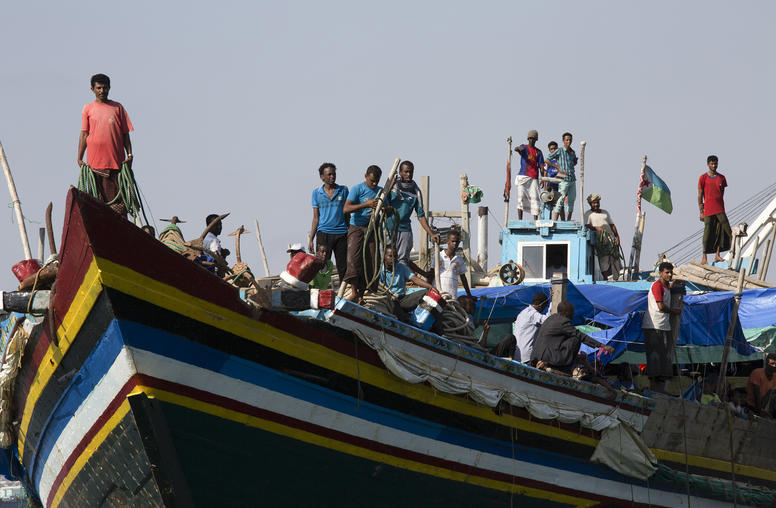
Why the U.S. Needs a Special Envoy for the Red Sea
The Trump administration has appointed four special envoys to coordinate U.S. policy toward key hot spots: Iran, North Korea, Syria, and Afghanistan. Yet in the Red Sea—one of the most volatile and lethal regions of the world afflicted by several interconnected conflicts and rivalries that pose significant challenges to American interests—U.S. policy has been rudderless in large part due to the absence of a similar post.
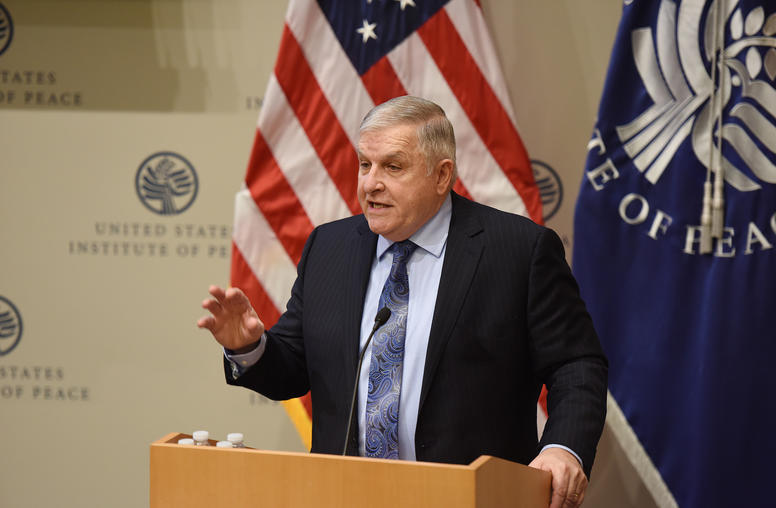
To Better Halt Wars, Does America Need a ‘Crisis Command’?
A string of violent crises since the 1990s—from Somalia to Iraq to others—has underscored America’s need to coordinate better among military forces, relief and development organizations, diplomats and other responders, retired Marine Corps General Anthony Zinni said this week. The United States should consider creating a standing “interagency command” for such crises, Zinni told listeners at USIP.
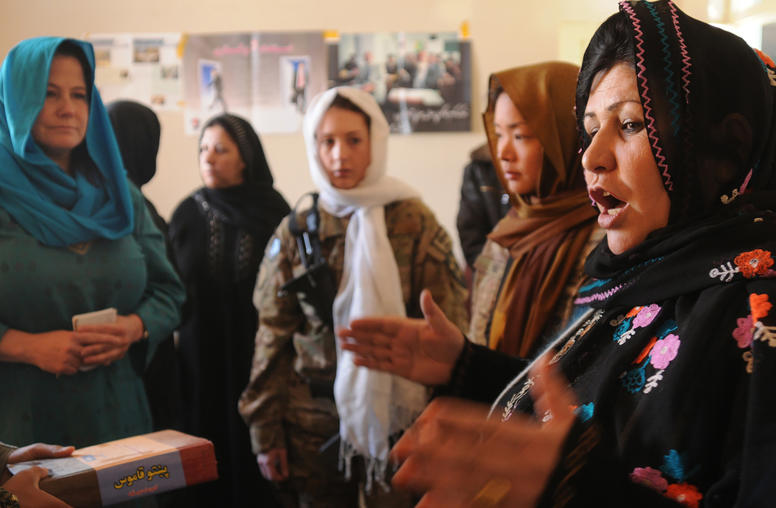
For the Afghan Peace Process to Work, Women Must be Involved
The bottom line is Afghan women want peace and they want to have a say in how it is negotiated. Without women at the negotiation table, a long-term and inclusive peace is dramatically less likely. Indeed, studies show that the inclusion of women in peace negotiations, leads to peace agreements that are representative of the needs of the people they affect and, therefore, more sustainable.
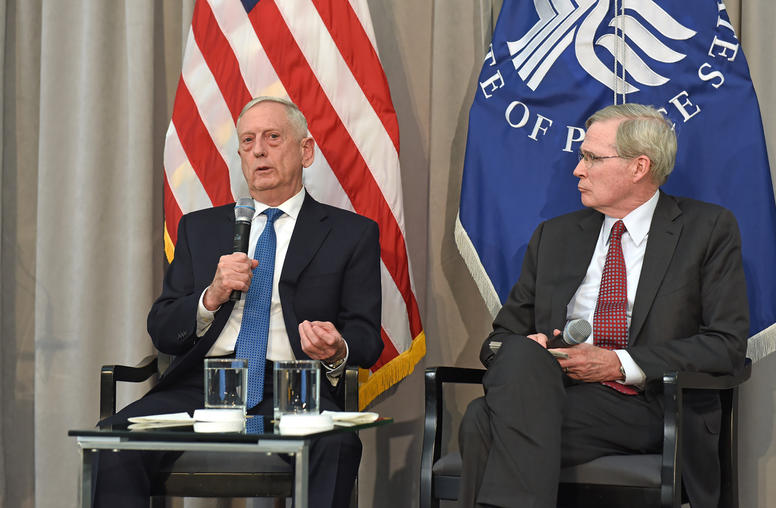
James Mattis: Yemen Needs a Truce Within 30 Days
Secretary of Defense James Mattis yesterday urged combatants in Yemen, including Saudi Arabia and Yemen’s Iran-backed Houthi faction, to negotiate a cease-fire in that war within 30 days while speaking to diplomats, military officers and conflict-resolution specialists at the U.S. Institute of Peace. In a webcast conversation moderated by former national security advisor and USIP Chair Stephen J. Hadley, Mattis also discussed global security challenges facing the United States—from Russia and China, to North Korea—cybersecurity and the need for the developed world to help fragile states improve their governance and address the root causes of extremism.
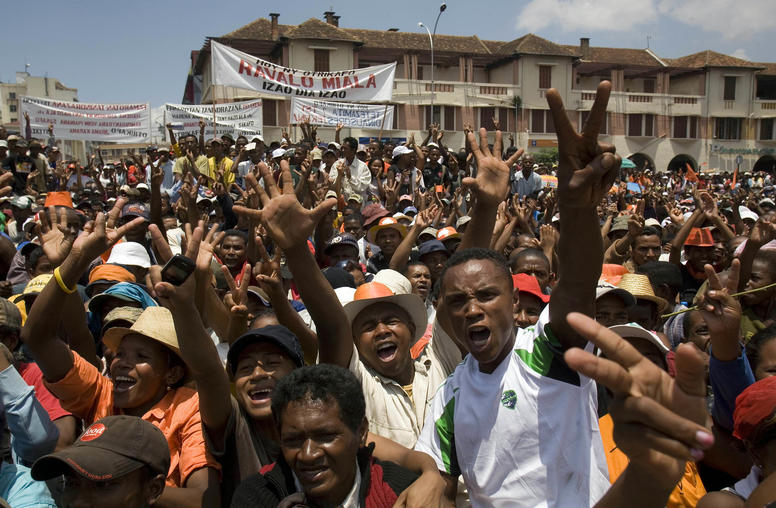
In Madagascar, a Presidential Vote Sees Old Fissures Resurface
On November 7, the Indian Ocean island nation of Madagascar, a country larger in area than California and more populous than Florida, goes to the polls to elect its next president. With a history of political crisis and fraught elections, the 2018 polls have seen renewed acrimony as no less than four former presidents of Madagascar seek the country’s highest office. USIP’s Aly Verjee and Jonas Claes discuss what’s at stake, the challenges ahead and how election disputes and violence can be mitigated.
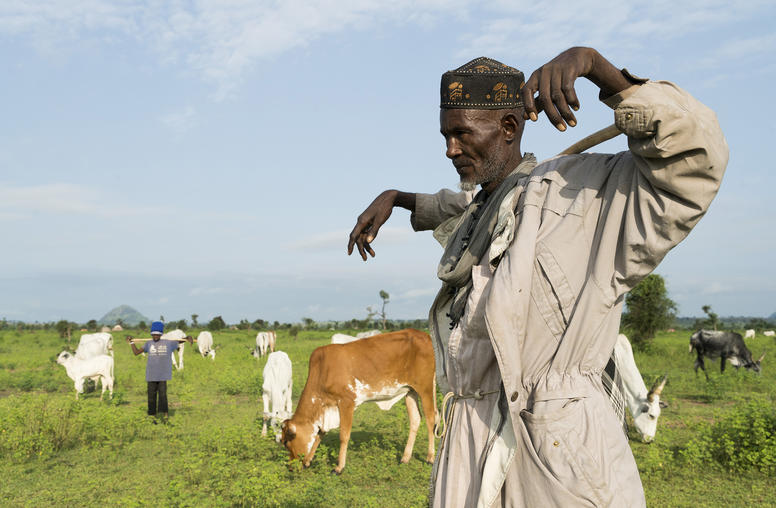
Nigeria’s Worst Violence Is Not Boko Haram
As Nigeria works to stabilize from years of warfare in its north, the deadliest threat is not the Boko Haram extremist movement, but escalating battles between farming and herding communities over scarce land and water. Bloodshed has increased since January, as armed groups have attacked and...
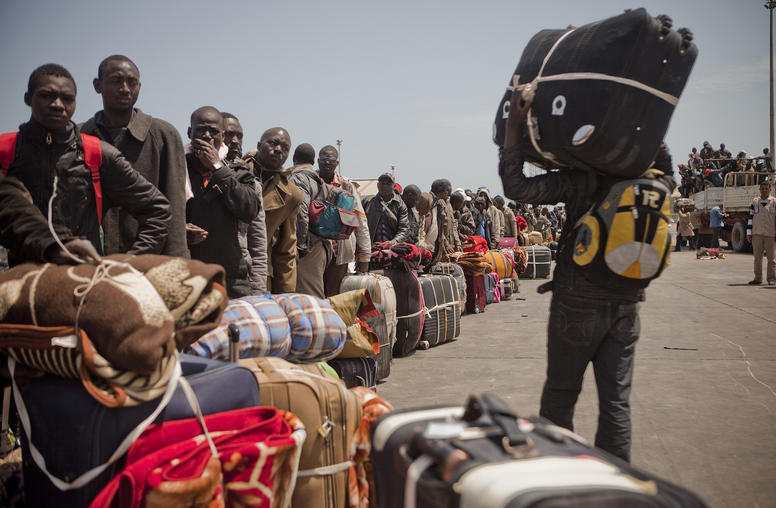
Libya’s Migrant Crisis Isn’t Just a European Problem
Next week, Italy will host an international conference intended to finally bring Libya’s bloody seven-year conflict toward resolution. Since the ouster of Muammar Qaddafi in 2011, successive U.S. administrations have watched Libya’s continuing collapse, believing that the country’s unraveling threatens only Europe. This is a mistake.